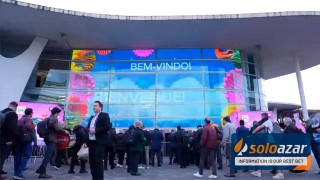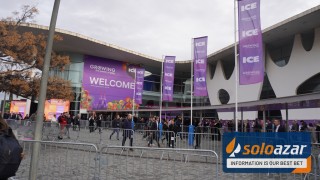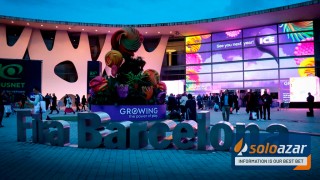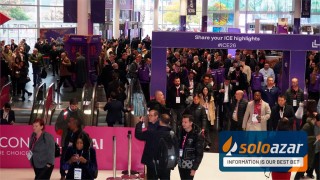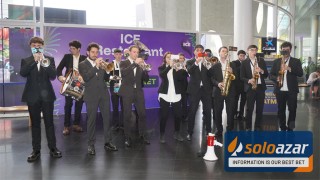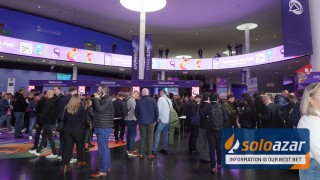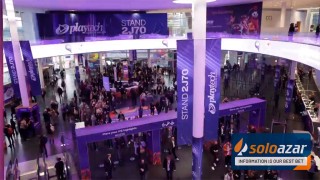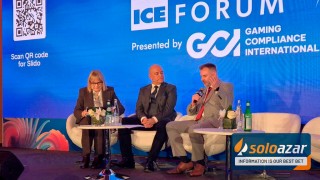Brazil: 63% of funds raised from lotteries must go to entities of the National Sports System and to sportspeople
2 minutos de lectura
(Brasilia).- The Brazilian Institute for Responsible Gambling (IBJR) presented a report on the regulation of sports betting. 63% of the funds collected from lotteries must go to entities of the National Sports System and to sportsmen and women, as well as to Brazilian sportsmen and women or those linked to sports organisations based in the country, in exchange for the use of their names by bookmakers, their sporting nicknames, their images, their brands, their trademarks, their emblems, their anthems, and the like.
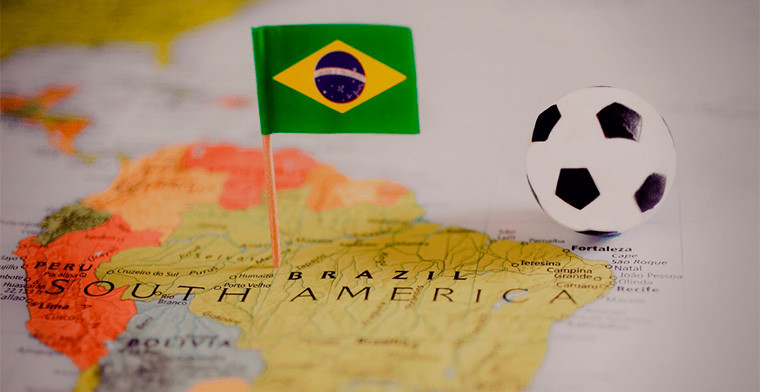
In the system described above and proposed by Law 13.756/2018, the portion of the funds intended to serve as consideration for the use of image and similar, will be collected centrally by the Federal Government, which will be responsible for transferring to each club and athlete the amount that corresponds to them when they accept the exploitation of their rights.
The Brazilian Responsible Gaming Institute, however, has become aware of a movement that advocates the deletion of the provisions of article 30, § 1-A, III, of Law 13.756/2018, so that the negotiation of the images, brands and symbols of the clubs will no longer be under the management of the federal government and will be subject to case-by-case negotiation between private parties, more specifically between bookmakers and sports clubs.
The proposed change is worrying and could be very detrimental to consumers, national sport and the government itself for the following reasons below:
1) Operational unviable: the centralised collection and transfer proposed in the legislation aims to make it possible for all clubs interested in licensing the use of their image, name and brand, and similars and effectively receive fair remuneration.
The proposal to remove this rule, provided for in Law 13.756/2018, makes the negotiation of such rights unviable. To illustrate the point, it is enough to know that today there are 840 clubs in Brazilian football, between series A, B, C and D. The federal government, as it has already stated, expects to have between 70 and 100 licensed operators with the regulation of the betting market.
Thus, if we conservatively consider the existence of 80 operators in Brazil after regulation and the existence of 840 football clubs, for the exploitation of image, symbol, brand and similar rights, no less than 67,200 contracts could be signed in football alone. It should be recalled that fixed odds betting covers other sports, such as basketball, volleyball, indoor football, wrestling, tennis, etc. In other words, there are often hundreds of thousands of contracts to be signed.
The figures are staggering and in themselves demonstrate the practical unviability of the proposal for decentralised negotiations.
2) Restriction of offers to consumers: the repeal of article 30, §1-A, III, of Law 13.756/2018 should also drastically impact consumers, who will see their right to free choice restricted.
By establishing individual negotiations, it will be possible for a club to assign its image rights and the similars to one operator and not to the others. In practice, this could lead to a monopoly. Only one particular bookmaker will be able to offer a club and others will be prevented from doing so, even if they are authorised by the government to operate in the regulated market.
For example. If Flamengo signs an agreement only with the operator Alfa, only that bookmaker will be able to offer bets on Flamengo matches. Consequently, consumers who want to bet on Flamengo matches will have to do so with the operator Alfa, or they will not have this entertainment option within the regulated market.
A possible monopoly is likely to generate less attractive odds due to the lack of competition, to the detriment of the consumer who will pay more for the service provided.
3) Reduction of the canalisation fee: a likely development resulting from a market restriction promoted by the deletion of article 30, §1-A, III, of Law 13.756/2018 and the desire of a club to license its rights to one or few regulated operators, is that the low supply in the market of matches of a given team may push consumers to seek companies in the parallel market, which, without the supervision of the Brazilian Government, will ignore the desire of domestic clubs to limit the use of their rights and will offer unrestricted playing options .
In other words, even if Flamengo wishes to negotiate its image rights, symbol etc. and so on, only to the operator Alfa in Brazil, other bookmakers can still offer Flamengo matches. So, in practice, the
interested in the Carioca club will bet from abroad if he is not interested in the bets offered by the operator Alfa.
The immediate effect of this measure is a larger parallel market (and a smaller regulated market) with less generation of resources and jobs for Brazil.
4) Reduction of sponsorship to clubs: a final consequence of the repeal of Article 30, §1-A, III of Law 13.756/2018 and the restriction of the use of rights and the like of clubs to one or few operators, is the impossibility for certain organisations to offer certain matches on their platform and that leads to a reduction in revenue and consequently the capital available to clubs with sponsorships is also reduced.
As it can be seen from the four points above, the initiative of some interested parties in attempting to remove Article 30, §1-A, III of Law 13.756/2018 stems from a total lack of understanding of the functioning of the sports betting market and ignores important collateral effects of this initiative which, above all, will have as its main consumers, with a reduction in supply, and sports clubs, with a restriction of investment in advertising, and the Brazilian government, with lower revenues.
Categoría:Sportsbook
Tags: Sin tags
País: Brazil
Región: South America
Event
ICE Barcelona 2026
19 de January 2026
Darío Zutel talks all about Win Systems' presence at ICE Barcelona 2026
(Barcelona, SoloAzar Exclusive).- Darío Zutel, Executive Chairman of Win Systems, reviews the results achieved at ICE Barcelona 2026, highlights the strategic quality of the contacts generated, the momentum of cashless solutions with WIN PAY, and outlines the company's innovation and expansion plans across the Americas, Europe, and other key international markets.
Monday 09 Feb 2026 / 12:00
Air Dice at ICE Barcelona 2026: Building Momentum Through Innovation and Strategic Market Expansion
(Barcelona, SoloAzar Exclusive).- In this interview, Erkki Nikunen, Partner & CBDO of Air Dice, reflects on the company’s performance at ICE Barcelona 2026, the strong reception of its FateQuest series, key industry trends shaping the sector, and Air Dice’s strategic priorities for growth, partnerships, and market expansion in 2026.
Monday 09 Feb 2026 / 12:00
Merkur Group Shines in Barcelona with Triple ICE Triumph
(Espelkamp/Barcelona).- Merkur Group secures three prestigious international accolades for operational excellence, social commitment, and standout exhibition experience.
Friday 06 Feb 2026 / 12:00
SUSCRIBIRSE
Para suscribirse a nuestro newsletter, complete sus datos
Reciba todo el contenido más reciente en su correo electrónico varias veces al mes.










